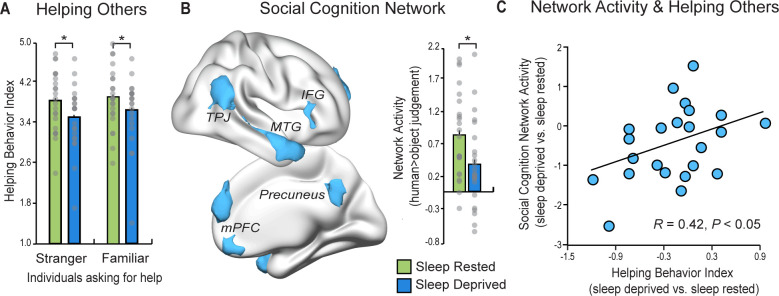Fig 1. In-laboratory Study 1.
(A) One night of sleep deprivation was associated with a significant decrease in helping desire, relative to the sleep-rested condition, for both circumstances involving strangers (left) and familiar others (right). (B) Activity in the social cognition network (left, meta-analysis-based activation mask, corrected for multiple comparisons, PFDR < 0.01) was significantly reduced following sleep deprivation, relative to the sleep-rested condition (right). (C) The relative reduction in social cognition brain network activity under conditions of sleep loss was significantly associated with lower helping behavior across individuals. *P < 0.05; error bars reflect standard error of the mean. Individual data presented in this figure can be found in S1 Data. IFG, inferior frontal gyrus; mPFC, medial prefrontal cortex; MTG, middle temporal gyrus; TPJ, temporal-parietal junction.

